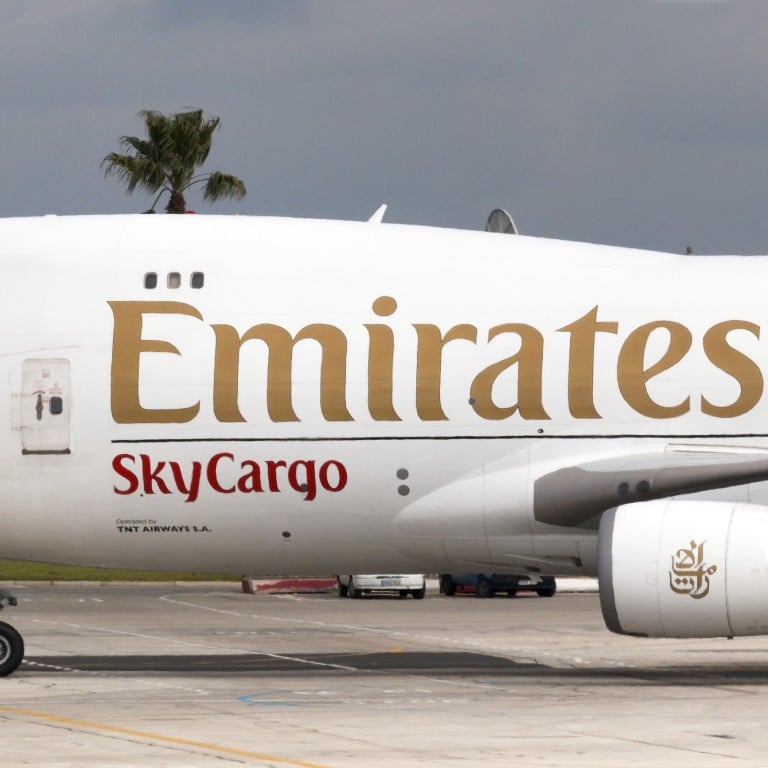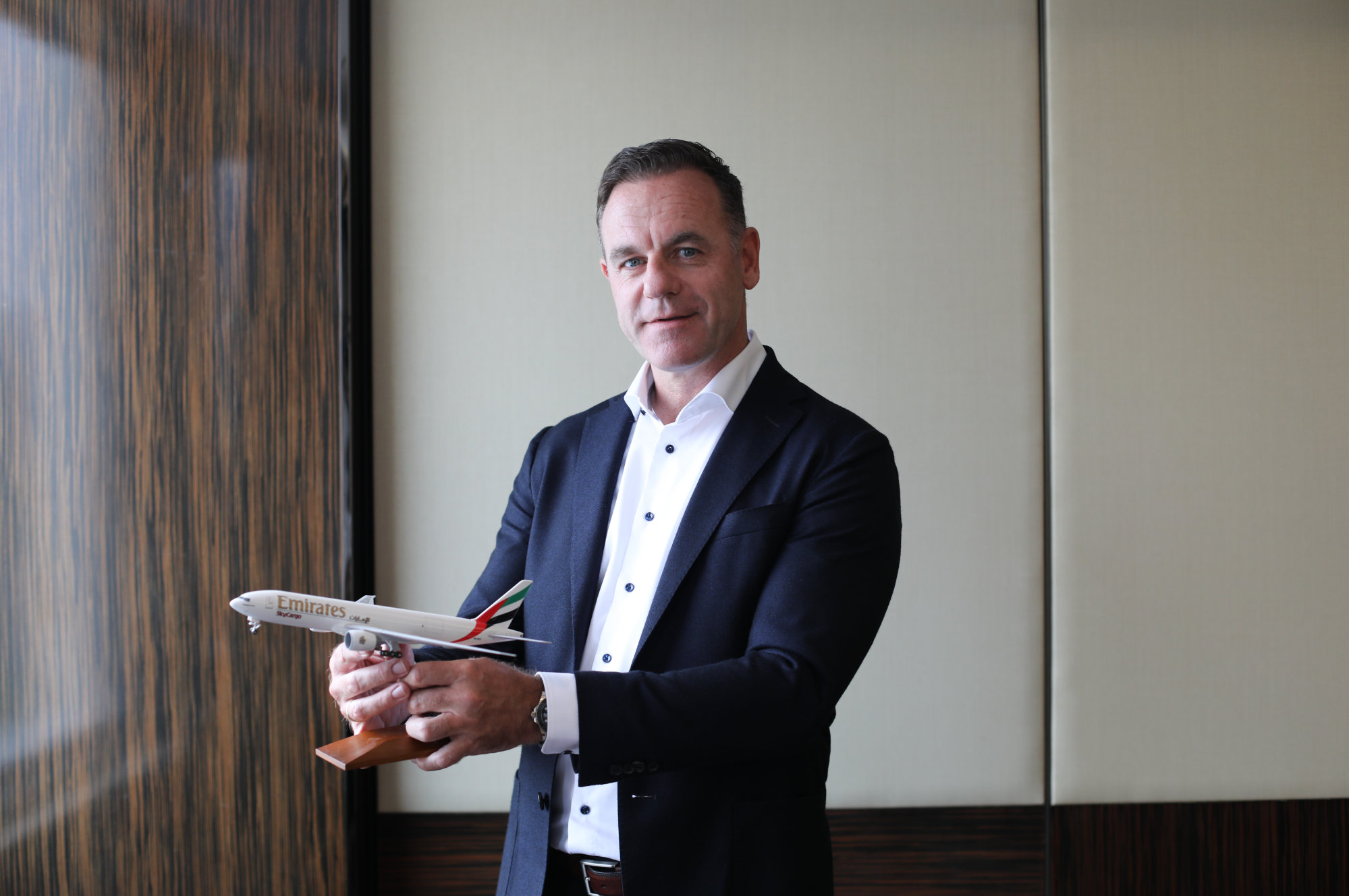
Emirates SkyCargo banking on Hong Kong e-commerce boom to increase freight flights, with plans to expand global fleet
- Cargo carrier expects to spend US$2.7 billion over next five years to add 15 aircraft to its fleet
- SkyCargo is among many eyeing slice of booming cargo business through Hong Kong International Airport
Dubai-based Emirates airline’s cargo unit is adding more flights to Hong Kong and mainland China and has major plans for expansion globally.
Jeffrey Van Haeften, Emirates SkyCargo senior vice-president of cargo commercial worldwide, told the Post it would spend US$2.7 billion over the next five years to add 15 more aircraft to its freighter fleet.
The cargo unit would add at least 10 freighter flights per week in Hong Kong and the mainland to meet growing demand.
It currently has 36 scheduled freighter flights per week to Hong Kong, and handled more than 150,000 tonnes of cargo in the 2022-23 financial year.
Van Haeften said he was upbeat about the city’s air cargo market despite exports declining by 7.8 per cent last year from 2022.
“Hong Kong is having a boom right now,” he said. “We have an ambition to grow at least, in China and Hong Kong combined, 10 extra aircraft in the next few years.”
He was banking on the change in Hongkongers’ consumer behaviour and the boom in online shopping to boost the air freight business.
“They order everything online, including textiles and furniture,” Van Haeften said.
SkyCargo saw its Hong Kong revenue surge between 2021 and last year, with growth of 6 per cent in 2021-22 rising by nearly 10 per cent more in the last financial year.

“I’m actually quite positive about the air freight market overall. We’ve already done 30 per cent more in volume in the first eight weeks of this year compared with last year,” he said.
Globally, Emirates SkyCargo was expecting to add 15 aircraft over the next five years to its fleet of 11 dedicated B777-F freighters and two leased Boeing 747-400 aircraft.
Emirates SkyCargo has ordered five new Boeing 777-200Fs freighter aircraft costing more than US$1.7 billion. He expected four to be delivered this year, and the fifth next year.
It would also convert 10 Boeing 777-300ER passenger aircraft into full freighters over the next five years, as part of a US$1 billion investment to grow its cargo capacity.
The cargo carrier is the airfreight unit of Emirates, the largest airline in the Middle East, and flies to more than 140 destinations globally.
Hong Kong airport authority’s US$640m retail bonds for new runway oversubscribed
In November last year, the Emirates Group posted a revenue of US$18.3 billion, raking in a profit of US$2.7 billion for the first six months of the year, up 138 per cent from the previous year.
SkyCargo carried 1.03 million tonnes in the first six months of last year, up 11 per cent year-on-year despite an overall softening in the global cargo market.
The carrier is among many eyeing a bigger slice of the market as Hong Kong International Airport, with 4.2 million tonnes of throughput in 2022 – the latest available data – was ranked the world’s busiest cargo airport, surpassing Shanghai, Los Angeles and Tokyo.
That accounted for about 48 per cent, or about HK$4.6 trillion, of the total value of Hong Kong’s external trade.
In January, Hong Kong’s cargo throughput remained robust, recording a year-on-year increase of 31.1 per cent to 377,000 tonnes, with a substantial increase of 44.5 per cent in exports.
Cargo flights rose that month by 27.3 per cent to 6,215 from 4,883.
Hong Kong ‘aims to increase flight links to more belt and road countries’
The latest figures from the International Air Transport Association (IATA) showed global air cargo demand was up 18.4 per cent in January.
Willie Walsh, IATA’s director general, said the booming e-commerce sector continued to help air cargo demand trend above growth in both trade and production since the last quarter of last year.
“The counterweight to this good news is uncertainty over how China’s economic slowdown will unfold,” he said.

